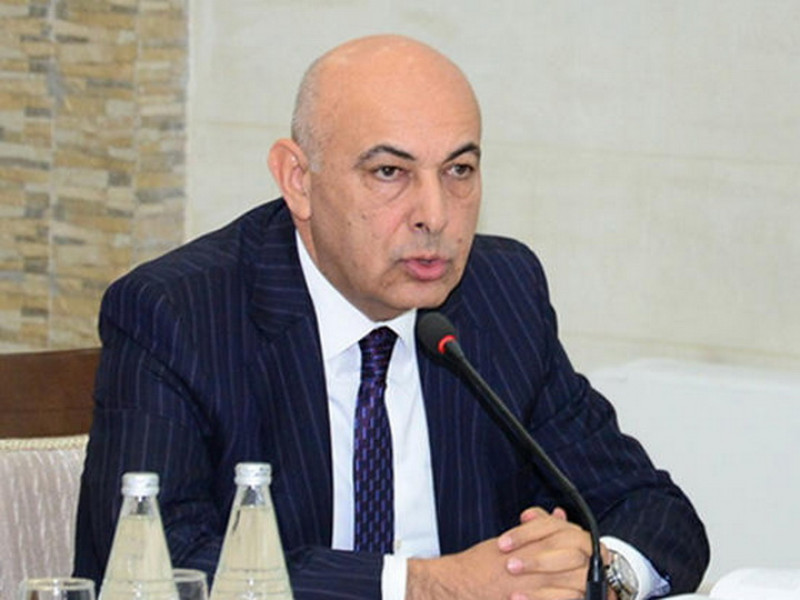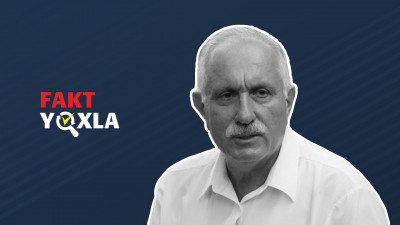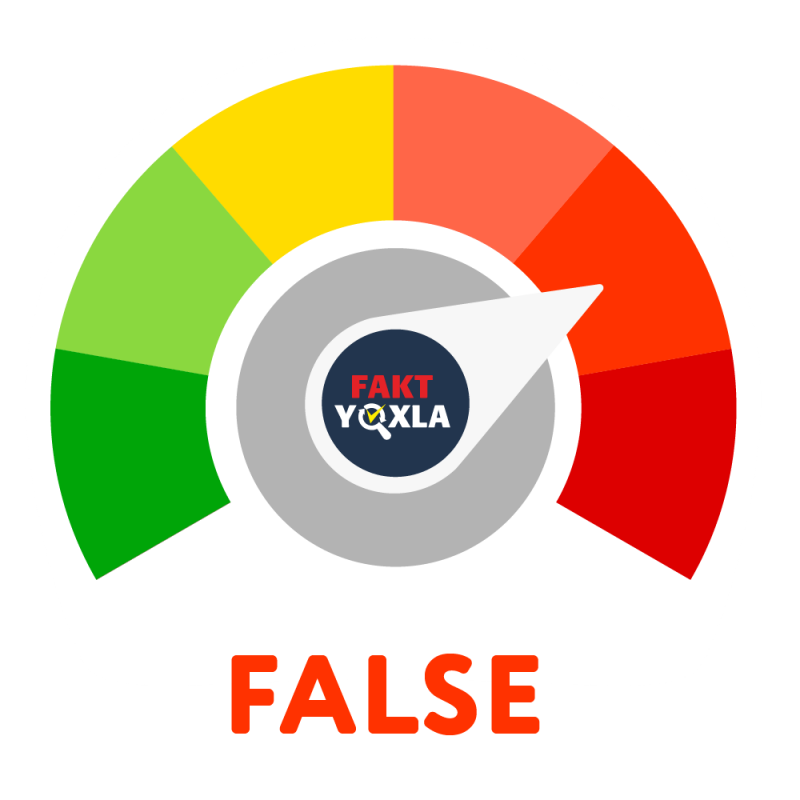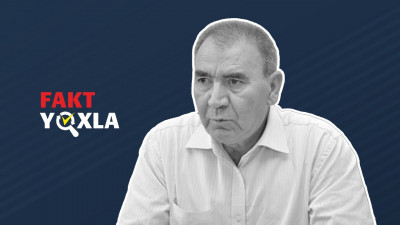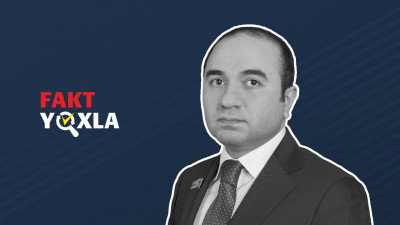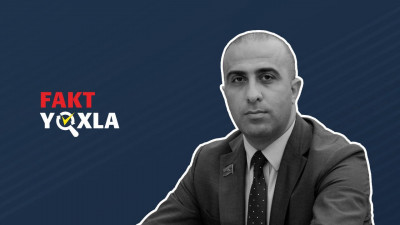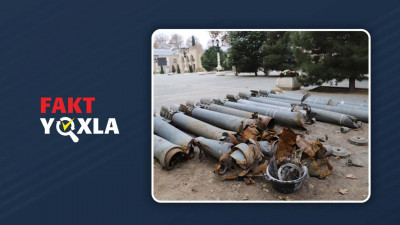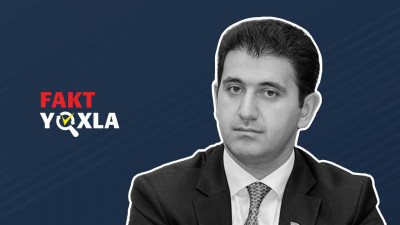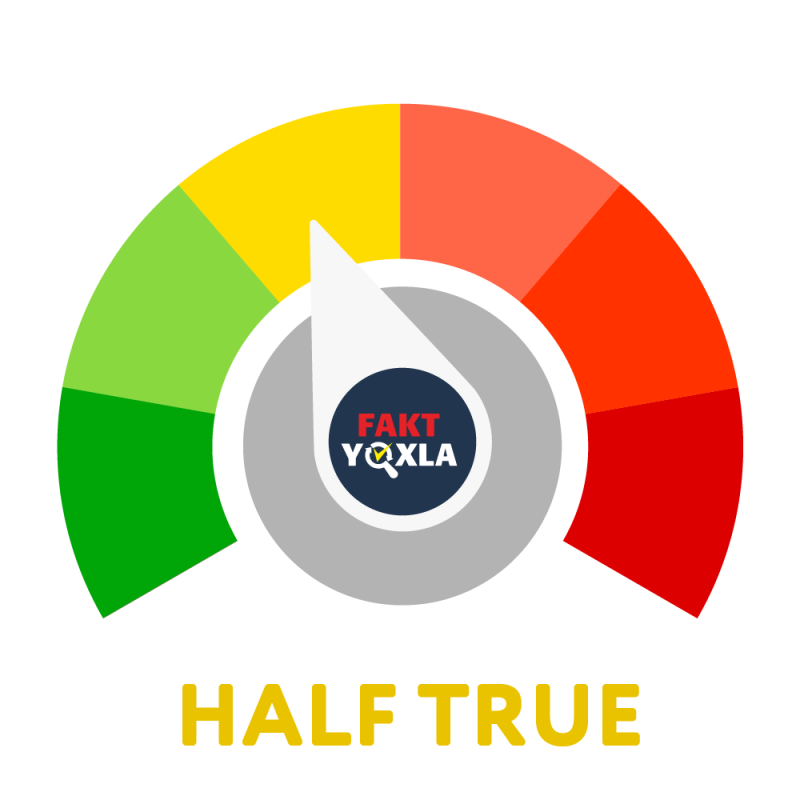Adalat Valiyev, Head of the Department for Relations with Political Parties and Legislative Authority, said that the victory in the Second Karabakh War would solve the problem of refugees and internally displaced persons in Azerbaijan.
"The victory in the Patriotic War also means the solution of the problem of more than 1 million refugees and internally displaced persons in Azerbaijan," he said.
Fakt Yoxla examined whether Adalat Valiyev's claim was true.
According to the Law on the Status of Refugees and Internally Displaced Persons (IDPs), a refugee is a person who is not a citizen of the Republic of Azerbaijan, stays outside the country of which he is a citizen for various reasons, and is unable or unwilling to return there as a precaution; an IDP is a person who is forced to leave his/her permanent place of residence as a result of military aggression, natural and man-made disasters in the territory of the Republic of Azerbaijan.
According to the Ministry of Foreign Affairs, there are a total of 1,176,776 refugees and IDPs in Azerbaijan after the Nagorno-Karabakh conflict. Of these, 350,000 are refugees from Armenia, 716,054 are IDPs from the occupied territories, and 110,612 are people displaced from the border with Armenia and the regions adjacent to the occupied territories. At the same time, 50,000 Meskhetian Turks, who were expelled from Uzbekistan during the Fergana events in the early 1990s, also take refuge in Azerbaijan.
The Law on the Status of Refugees and Internally Displaced Persons states that refugees who acquire Azerbaijani citizenship lose their refugee status. This means that these people are no longer considered refugees.
Refugees deported from Armenia and Meskhetian Turks were granted Azerbaijani citizenship in 1999. After that, their names were removed from the list of the UN High Commissioner for Refugees.
There is a Great Return program, prepared with the views and proposals of 34 international organizations, 12 different government agencies, and non-governmental organizations on the return of IDPs to the liberated lands.
The program envisages demining operations in the area after the signing of the Great Peace agreement, reassessment of damage to the districts and restoration work, restoration of infrastructure, construction of new settlements, the return of IDPs, and creation of new jobs.
It is also noted that the measures envisaged in the program have already been implemented in the liberated Jojug Marjanli village and in Shikharkh settlement of Tartar district, which was previously the administrative territory of Nagorno-Karabakh.
The UN High Commissioner for Refugees offers three solutions to the sustainable solution to the refugee problem:
1. Voluntary repatriation (return to the homeland);
2. Local integration;
3. Placement in a third country.
We noted above that refugees in Azerbaijan have been granted citizenship; therefore, they lost their refugee status. However, according to the legislation, although they were granted citizenship, they did not lose the right to return to the countries they left.
These refugees have been integrated into the local community over the years. The UN High Commissioner for Refugees (UNHCR) reports that refugees and IDPs in Azerbaijan are not subjected to discrimination in society. In this case, their placement in a third country is off the agenda.
According to a statement signed between Azerbaijan, Russia, and Armenia, Azerbaijani IDPs will be returned to Nagorno-Karabakh and surrounding districts under the supervision of the UN High Commissioner for Refugees.
However, it is unclear when this will happen and what will be the mechanism, as well as how the return to the territories, which are still under the control of the separatist regime, will realize. At the same time, a total of 680,000 IDPs are expected to return to Jabrayil, Gubadli, Zangilan, Khojavend, Shusha, Kalbajar, Aghdam, and Lachin districts, which were completely or partially liberated due to the victory in the Second Karabakh War.
Thus, Adalat Valiyev's claim is true to a certain extent, especially, regarding IDPs. Neither the current legislation nor the UN High Commissioner for Refugees (UNHCR) considers the people he calls refugees to be refugees.
Fakt Yoxla concludes that Adalat Valiyev's claim is Half True.



